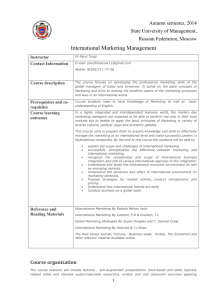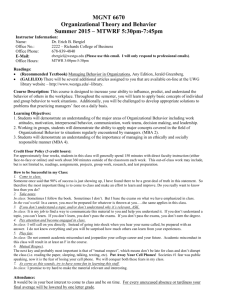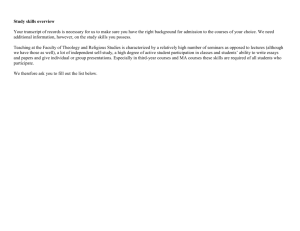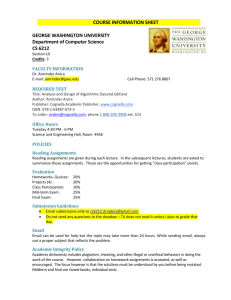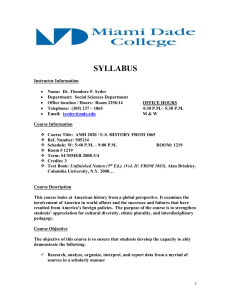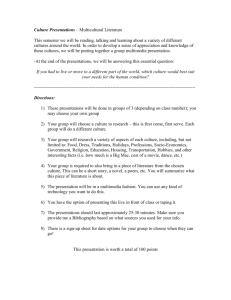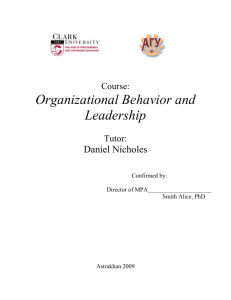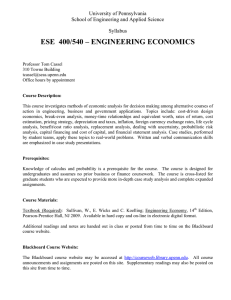To: Tom Acord, Associate Dean - California State University, East Bay
advertisement
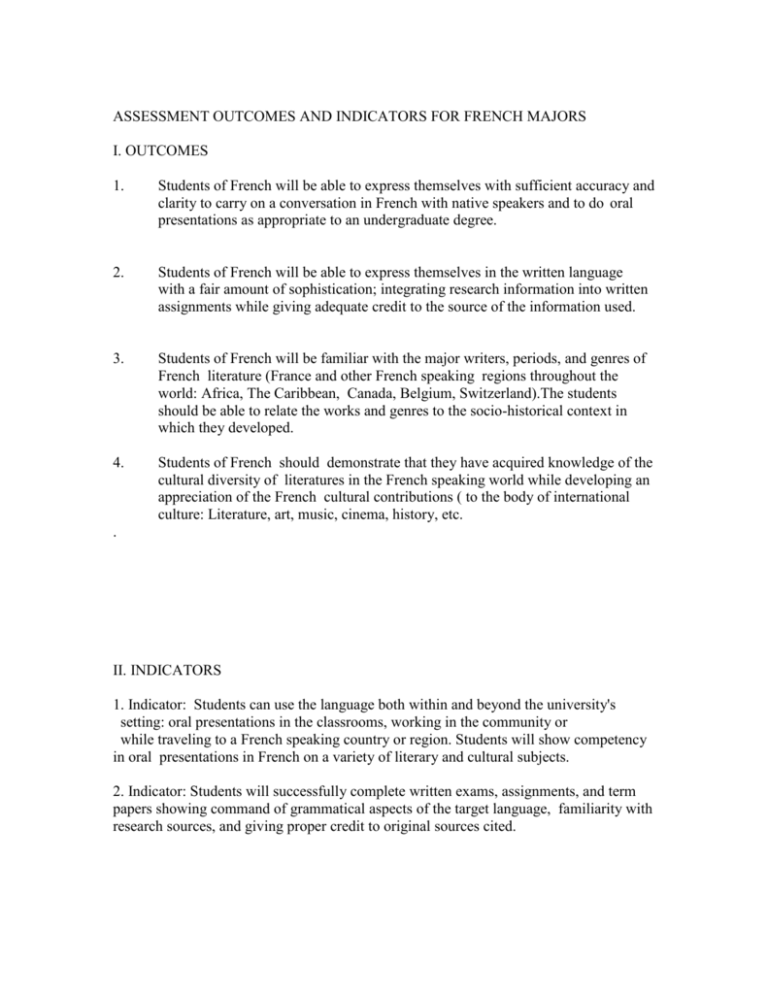
ASSESSMENT OUTCOMES AND INDICATORS FOR FRENCH MAJORS I. OUTCOMES 1. Students of French will be able to express themselves with sufficient accuracy and clarity to carry on a conversation in French with native speakers and to do oral presentations as appropriate to an undergraduate degree. 2. Students of French will be able to express themselves in the written language with a fair amount of sophistication; integrating research information into written assignments while giving adequate credit to the source of the information used. 3. Students of French will be familiar with the major writers, periods, and genres of French literature (France and other French speaking regions throughout the world: Africa, The Caribbean, Canada, Belgium, Switzerland).The students should be able to relate the works and genres to the socio-historical context in which they developed. 4. Students of French should demonstrate that they have acquired knowledge of the cultural diversity of literatures in the French speaking world while developing an appreciation of the French cultural contributions ( to the body of international culture: Literature, art, music, cinema, history, etc. . II. INDICATORS 1. Indicator: Students can use the language both within and beyond the university's setting: oral presentations in the classrooms, working in the community or while traveling to a French speaking country or region. Students will show competency in oral presentations in French on a variety of literary and cultural subjects. 2. Indicator: Students will successfully complete written exams, assignments, and term papers showing command of grammatical aspects of the target language, familiarity with research sources, and giving proper credit to original sources cited. 3. Indicator: After completion of the required sequence of courses in the French language, students will demonstrate such knowledge in written exams, oral presentations, written assignments, and term papers. 4. Indicator: Students will demonstrate successful application of acquired knowledge and skills to enter either graduate school or obtain work (related to major) within the community. Students will also show evidence of becoming lifelong learners by using the language for further study, to expand work opportunities in the community and abroad. III. In order to evaluate what students know about Spanish (language, culture, literature and sensitivity issues) at the beginning of the course, Modern Languages will administer a standard exam/ questionnaire at the beginning of the course(s). This exam/questionnaire will have a written and oral component and will be designed to test students’ knowledge of the aforementioned elements. After the course(s) is completed, the same exam will be administered to test student progress. In addition, students’ assignments, oral presentations, term papers, and a portfolio (when applicable) should also reflect progressive growth regarding the above issues. Upon graduation students should be asked to complete an evaluation of the program (a questionnaire determining if they feel that we have been successful preparing them for the journey of learning while strengthening their individual capacities to participate actively in local and world communities).
